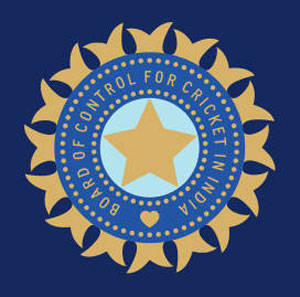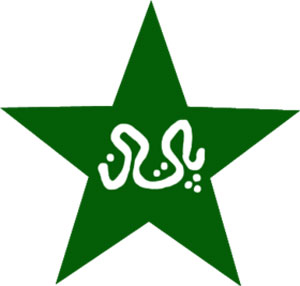Now Wave your Flag: ICC World Cup 2011 Preview
By Khalid Hussain | Sports | Published 14 years ago
The world’s cricket chiefs believe that it’s “The Cup that Counts.” But sceptics argue that with the racy Twenty20 format picking up fast, the 50-over World Cup is becoming more and more irrelevant.
Whatever stands true, one thing’s for sure: from February 19 to April 2, billions of cricket fans around the globe will be glued to their television screens to watch World Cup 2011, to be played in Bangladesh, India and Sri Lanka.
Much has happened since the last World Cup was held in the Caribbean in 2007. That event turned out to be quite a flop due to a myriad of reasons. Firstly, top draws Pakistan and India crashed out of the tournament a little too early. The format was too long and exhaustive while the Australia-Sri Lanka finale in Bridgetown, Barbados, turned out to be a farce due to umpire blunders. The 2007 World Cup was soon followed by the inaugural ICC World Twenty20 Championship in South Africa. Unlike the long, boring World Cup in the Caribbean, this new tournament turned out to be an instant success with cricket viewers all over the world. The 20-over format guaranteed action-packed matches while a nerve-wracking Pakistan-India title clash turned out to be the perfect icing on the cake.
Since then, two more editions of the ICC World Twenty20 have taken place in England (2009) and the West Indies (2010) — and both of them were successful events. That’s not all. A money-spinning Twenty20 league blessed by Bollywood glamour and cricketing firepower is also threatening to upset the applecart of One-Day cricket. The Indian Premier League (IPL), with its truckloads of dollars, has lured several top-notch cricketers. Some have even prematurely ended their international careers to fully focus on the Twenty20 spectacle.
In recent years, the debate over whether the Twenty20 format will replace 50-over matches has really caught up. Much will depend on the success of World Cup 2011. The International Cricket Council (ICC) believes that the fact that players will be representing their countries in the World Cup makes it the event that really matters. But the ICC knows that this factor alone cannot guarantee the success of this 43-day tournament. That’s precisely the reason why the event’s format has been altered with lesser teams and fewer days. The prize money has also been raised. Just months after World Cup 2007, the four host nations (Pakistan was one of the hosts at that time) mutually agreed to revise the format of the 2011 edition. It’s identical to the format of the 1996 World Cup, but with the addition of two more teams. In 1996, a total of 12 teams featured in the World Cup.
The first round of the 2011 tournament will be a round-robin league for which the 14 teams have been divided into two groups of seven teams each. The seven teams play each other once with the top four from each group qualifying for the quarter-finals. Unlike the 2007 World Cup, this format ensures that each team gets to play a minimum of six matches even if they are ruled out of the tournament due to early defeats.
The 2011 World Cup champions will walk away with a prize purse of US$3 million with the runners-up getting US$1.5 million as the ICC has decided to double the total allocation for the coveted tournament to US$10 million.
The new format has its critics. Some experts fear that most of the qualifying round matches that will run from February 19 to March 20 will be one-sided affairs. Quite likely to be true as top teams like defending champions Australia, England, India and South Africa will be playing against cricketing minnows like Canada, Netherlands, Ireland and Kenya during the round-robin. Unless there are a few mega upsets, the quarter-final line-up will be like this: Pool A — Sri Lanka, Australia, Pakistan and New Zealand. Pool B — India, South Africa, England and West Indies.
Of the other six teams, the only side with any realistic chances of making the cut for the last-eight is Bangladesh. The World Cup co-hosts will have the home advantage and can get through to the knockout stage at the expense of West Indies, who may be vulnerable. The World Cup, in effect, will start from March 23 when the quarter-finals get underway. This means that the team that manages to conserve its energy during the qualifying rounds and can peak at the right time — during the last 11 days of the tournament — will have the best chances of winning the Cup.
Making predictions about World Cup matches is always a risky business. But Newsline decided to stick its neck out and pick out the six best teams that could walk away with the Cup.
As one of the World Cup co-hosts with a lion’s share of the matches including the finale, India has the home advantage. But that is never really enough for a team to go all the way and India won’t solely be relying on it either. Normally, it’s the bowlers who win cricket matches but India has the sort of batting firepower that it can even live with mediocre showing from its bowling attack. With Sachin Tendulkar at the top, India has a number of master blasters like Virender Sehwag, Gautam Gambhir, Yuvraj Singh and Yusuf Pathan. They have reliability in the middle-order too, thanks to Rahul Dravid and VVS Laxman.
India is also brimming with spinning options for a tournament that might well be decided by spinners. They have selected three specialist spinners in the 15-man squad: Harbhajan Singh, Ravichandran Ashwin and Piyush Chawla. And then three more — Virender Sehwag, Suresh Raina and Yusuf Pathan — will provide the team with good part-time options.
Even some of Pakistan’s most ardent supporters would find it funny to see their team included among the title favourites. After all, Pakistan has been in a major turmoil for months. Their team is far from ideal for a major assignment like the World Cup and the Pakistan Cricket Board (PCB) added to the team’s woes by delaying naming the captain till the last moment.
But like cornered tigers, Pakistan has the tendency of becoming lethal when under pressure. Very few people gave Pakistan much of a chance when they won the World Cup in 1992 and not many believed that they would do well in 1999 when the Greenshirts featured in the final. More recently, Pakistan stunned the cricket world by winning the ICC World Twenty20 championship in England in 2009 against all odds.
What Pakistan needs is team spirit. They have match-winners like Shahid Afridi and Abdul Razzaq, but only by playing as a well-oiled unit can the Pakistanis prove wrong the experts who are predicting a semi-final line-up comprising India, England, Sri Lanka and South Africa. Pakistan’s most potent weapon will be their spinners. They have a lot of variety with specialist spinners Saeed Ajmal and Abdul Rehman. Afridi is a world class leg-spinner when it comes to limited-overs cricket. They also have Mohammad Hafeez. In batting, Pakistan should get some good starts from Hafeez and Kamran Akmal at the top, with Younis Khan and Misbah-ul-Haq providing stability to the middle-order. The big hitting trio of Afridi, Abdul Razzaq and Umar Akmal can lift the run-rate in the final stages of the innings, especially in the powerplay overs.
In Umar Gul, they have a quality bowler in the pace attack that includes Shoaib Akhtar, Wahab Riaz, Sohail Tanvir and Razzaq. On paper, they look good. But Pakistan will have to transform their potential into solid performances to shine in the World Cup.
The 2007 finalists will certainly be fancying their chances of regaining the World Cup. They’ve won it in 1996 and are perfectly placed to repeat that feat this year. Sri Lanka is a top-flight team with several quality batsmen and a number of wicket-taking bowlers. In Tillakaratne Dilshan they have an ideal opener and then there are world class batters like Mahela Jayawardene and Kumar Sangakkara.
Muttiah Muralitharan together with Ajantha Mendis forms a lethal spin partnership while Lasith Malinga has the pace and sting to floor any batting line-up on his day. Sri Lanka will try to make full use of the home conditions and look set to reach at least the last-four stage of the tournament.
England will go into the World Cup confident that they can finally win the coveted title. They are the form team, having won the ICC World Twenty20 crown in the Caribbean last year and, more importantly, the Ashes in Australia. They have a balanced One-Day squad with most of the batters like skipper Andrew Strauss, Jonathon Trott and Kevin Pietersen in good form. Their pace attack is good and the presence of a world class spinner — Graeme Swann — is certainly going to be an added advantage for the English side.
Apart from the fact that they are labelled as ‘perennial chokers’ when it comes to a World Cup, everything is going right for the Proteas. They will go into the World Cup having beaten title favourites India in a keenly fought One-Day series at home. They have a perfect combination of just the right sort of batsmen — the ones who can bat as the situation demands. Jaques Kallis and skipper Graeme Smith bring loads of experience to the batting. Hashim Amla is in the form of his life while AB de Villiers and JP Duminy are all accomplished batsmen.
The bowling arsenal looks potent too with the pace of Dale Steyn and Morne Morkel. Imran Tahir, the uncapped, Pakistan-born spinner, could be a surprise package.
The Aussies seemed down and out when they crashed to an embarrassing Ashes defeat late last year. Many thought their time was up and that after winning three World Cup crowns in a row, Australia will finally fail to retain the title this year. But by trouncing England in their One-Day series soon after the Ashes debacle, Australia has made it clear that they are very much in contention to defend the World Cup in the subcontinent. Australia is a team for the big occasion. They have the last three World Cups to their name. Their key men will be skipper Rickey Ponting and all-rounder Shane Watson. Ponting has a point to prove after leading the Aussies to an embarrassing Ashes defeat against England at home. Watson sees himself as one of the world’s best all-rounders and would certainly want to prove so at the World Cup.
Share your thoughts in the comment section below:
Who do you think will win the world cup and why?And participate in our poll:
Do you think that the Pakistani cricket team will reach the finals of the 2011 ICC World Cup?
- Yes, and they will bring the Cup home! (71%, 576 Votes)
- No (23%, 186 Votes)
- Yes, but they will lose in the finals (6%, 60 Votes)
Total Voters: 813
The writer is ranked among the battle-hardened journalists covering sports. As sports editor for The News, he covers sporting action extensively in Pakistan and abroad.








